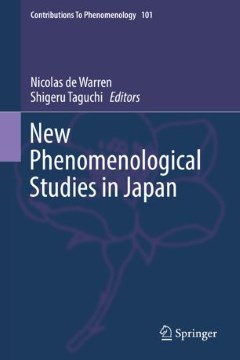How is time constituted in consciousness?
theories of apprehension in Husserl's phenomenology of time
pp. 17-28
Abstract
This paper examines the problem of how experience is constituted as a temporal object through the lens of Husserl's phenomenology of time-consciousness. The aim of this paper is to stress three significant aspects of Husserl's approach: his rethinking of the "apprehension-content" scheme, his clarification the position of inner time-consciousness within the system of transcendental phenomenology, and his answer to the question of whether the temporality of experience is constituted at the very moment of experience or subsequently by reflection. After a critical review of the development of Husserl's analysis of these issues, this paper proposes an account that combines various elements from the development of Husserl's thinking in connection with Husserl's later thought.
Publication details
Published in:
de Warren Nicolas, Taguchi Shigeru (2019) New phenomenological studies in Japan. Dordrecht, Springer.
Pages: 17-28
DOI: 10.1007/978-3-030-11893-8_2
Full citation:
Murata Norio (2019) „How is time constituted in consciousness?: theories of apprehension in Husserl's phenomenology of time“, In: N. De Warren & S. Taguchi (eds.), New phenomenological studies in Japan, Dordrecht, Springer, 17–28.


